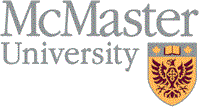
Course Objective:
We will cover the material from Chapters 18, 19, 21, 22 and
selected sections from Chapters 4 and 17 of the prescribed text
book. Students are responsible for reading the relevant material
and also for working out most of the exercises in the book. For a
weekly update on what is covered in the course see the course syllabus
You are expected to exhibit honesty
and use ethical behaviour in all aspects of the learning process.
Academic credentials you earn are rooted in principles of honesty
and academic integrity. Academic dishonesty is to knowingly act or
fail to act in a way that results or could result in unearned
academic credit or advantage. This behaviour can result in serious
consequences, e.g. the grade of zero on an assignment, loss of
credit with a notation on the transcript (notation reads: Grade of
F assigned for academic dishonesty), and/or suspension or
expulsion from the university. It is your responsibility to
understand what constitutes academic dishonesty. For information
on the various types of academic dishonesty please refer to the
Academic Integrity Policy, located at http://www.mcmaster.ca/academicintegrity
The following illustrates
only three forms of academic dishonesty:
1. Plagiarism,
e.g. the submission of work that is not one's own or for which
other credit has been obtained.
2. Improper
collaboration in group work.
3. Copying
or using unauthorized aids in tests and examinations.
Once a final
examination is written, the final grade cannot be
adjusted to take into account any special situation.
For more detail, and to download the "Petition For
Missed Term Work Form," visit the "Procedures &
Forms" web page located at the address http://www.science.mcmaster.ca/associatedean/forms-resources
.
Calculators:
Only the
standard McMaster calculator Casio fx 991 can be used for the
tests and the final examination.
The
instructor
and the university reserve the right to modify or revise
information contained in this course during the term. The
university may change the dates and deadlines for any or all
courses in extreme circumstances. If either type of
modification or revision becomes necessary, reasonable notice
and communication with the students will be given with
explanation and the opportunity to comment on changes. It is
the responsibility of the student to check their McMaster
email and course websites weekly during the term and to note
any changes.
(the numbers are chapters and sections from the text book)
Week 1 (04/01 to
08/01): Review of Chapter 4, 18.1, 18.2
Week 3 (18/01 to
22/01): 18.4, 18.5, 18.6
Week 5 (01/02 to
05/02): 17.1, 17.2, 19.1, 19.5
Week 7 (22/02 to
26/02): 21.1, 21.2,
17.5, 21.3
Week 9 (07/03 to
11/03): 22.1, 22.3
Week 11 (21/03
to 25/03): Review and spare